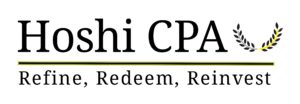Let’s face it.
Taxes are complicated and involve a lot of paperwork, forms, and stress.
It is crucial to get your books in order, so you know where you stand with your business performance, profitability, and cash flow. It is equally important for tax professionals that your books are reconciled and organized so that preparing tax returns is not as time-consuming as otherwise.
Good tax professionals can prepare tax returns following the most current federal, state, and local tax laws and keep you out of trouble. Still, great tax professionals can advise you and guide you on how you structure your business to reduce your tax liabilities.
Don’t blindly trust any tax preparer without checking their credentials and experience first. Here we list five questions you should ask a tax preparer before hiring them.
What industry expertise do you have?
Your tax professionals should know your business industry and know the most up-to-date GAAP rules and tax laws applicable in your industry. Why is it important? There is a special treatment in each industry when it comes to deduction and credits.
For example, cannabis clients should be aware of the business deduction limit due to IRC Sec. 280E at the federal level. Software technology companies should understand the ramifications of the R&D credit. Construction industries need to understand the differences between long-term contract and revenue recognition. You would like to know what industry experience and expertise your tax professional possess and what type of value they have provided to their clients.
If they can answer your questions and provide insights about the industry, you may feel more confident and comfortable in the professional’s ability to execute the tax work.
What are your qualifications?
Tax preparers have varying credentials and qualifications. There are three major categories we look at:
1. Certified Public Accountants (CPAs): They get a license from the state accounting board after passing the American Institute of Certified Public Accountants exam (AICPA). A rigorous exam tests a candidate’s knowledge in accounting, financial reporting, and taxes. There are also minimum education and work experience requirements to qualify as a CPA.
2. Enrolled Agents (EA): IRS provides a license for Enrolled Agents after a candidate passes a three-part exam. They have to abide by the IRS’s ethical standards and continue their education to keep their tax knowledge up-to-date.
3. Tax attorneys: Tax attorneys are licensed by the state bars. They are experts in complicated taxes, and they represent you in a court proceeding. However, they may or may not have had additional education or expertise in tax planning.
At a minimum, tax preparers should possess PTIN (Preparer Tax Identification Number). You can search the IRS preparer directory to see if they are registered and if their license is current.
How will you charge for the services?
Every tax preparer has different fee structures, so it’s vital to know how they will charge you before you hire them. Some prevalent billing processes are:
● Charge by the hour
● By number of schedules, meetings, and forms in return
● Combination of the above two methods
● A flat rate irrespective of hours and forms
Also, get an estimate of the likely fees and ask for variables that can cause fluctuations, so you have a better idea of how much you end up paying. If you are paying by the hour, organize the paperwork ahead of time or else it will cost you more.
Will you back me up during an audit?
The likelihood of an audit is slim—from 2010 to 2018, the IRS examined only 0.6% of individual federal income tax returns and 0.97% of all corporation returns. Still, check whether the tax preparer will back you up in the unlikely event of an IRS audit. Paying for tax compliance might not include tax defense. For example, will they:
● Attend an audit with you?
● Respond to IRS/state tax agency for letters of inquiry?
For individuals, the audit rate significantly increases to 1.10% as your income is over $500,000. The IRS can flag a return for several reasons—from random selections to accounts with discrepancies in numbers or suspicious activities. Instead of taking a chance, check your numbers and forms before filing.
What happens if there is an error?
According to a survey of Americans who used a tax preparer in the past five years, only 45% reviewed the returns. Meanwhile, 16% signed the return without going through it. Leaving complicated tax return filing to professionals brings relief, but ultimately you will be held responsible for its accuracy. You should not expect errors from professionals, but mistakes could happen. It would help if you understood what errors there were in the returns and recourses the professional would have to make them right.
About Hoshi CPA LLC
Udai Hoshi assists individuals, U.S. business owners, and Japanese-speaking communities with comprehensive tax consultations such as tax planning, tax resolution, tax compliance, and CFO Professional Services. You can talk to Udai Hoshi by booking one of the four sessions: complimentary 45-minute strategy session, cares act economy stimulus package consulting, a quick call, and complimentary 45-minute CFO strategy session. Contact us today for more information about tax-related services by HOSHI CPA in Portland, Oregon. You can call us at (503) 388-6580 or drop an email at staff@hoshicpa.com.



